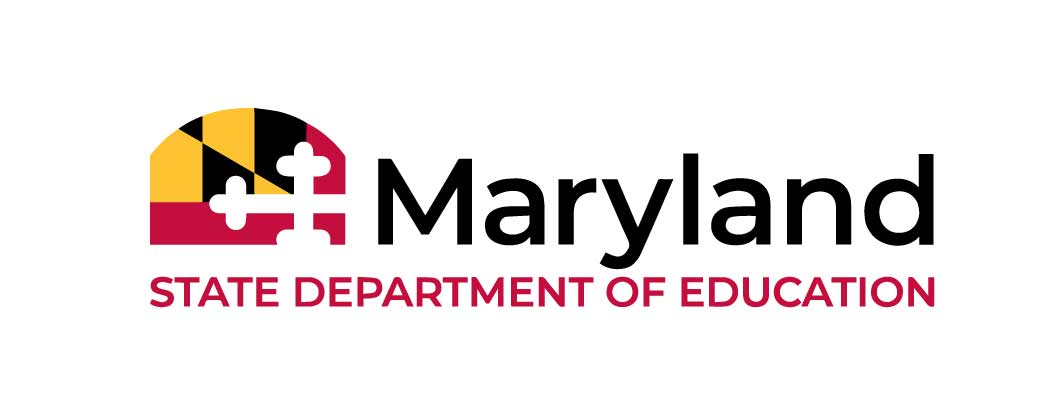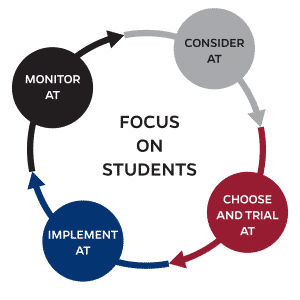The JHU AT (Assistive Technology) Cycle

The Johns Hopkins University Assistive Technology (JHU AT) Cycle is a systematic process to help Individualized Educational Program (IEP) teams carefully consider if a student needs assistive technology devices and services to access the general education curriculum.
While consideration of assistive technology is a critical part of the AT Cycle, practitioners realize there is more to effective implementation of assistive technology than just considering a student’s need. Teachers need help knowing what technology and services to use, how to use them, and how to track a student’s progress as a result of using AT. With that broader context in mind, the five-step Consideration Process evolved into a four phase AT Cycle.
For specialists in the field of assistive technology and special education, the JHU AT Cycle guides IEP teams through four phases of examining, trialing, implementing, and monitoring AT.
For general educators, the JHU AT Cycle offers an opportunity to gain a deeper understanding of assistive technology and the ways it can help students. General educators play an important role in decisions about assistive technology for students. Since AT is intended to “level the playing field” and allow students with disabilities to participate more actively and independently in general education settings, informed general educators have an opportunity to play an active role in supporting IEP teams to make decisions about assistive technology. In the process, general educators may discover tools that benefit many students in their classrooms.

